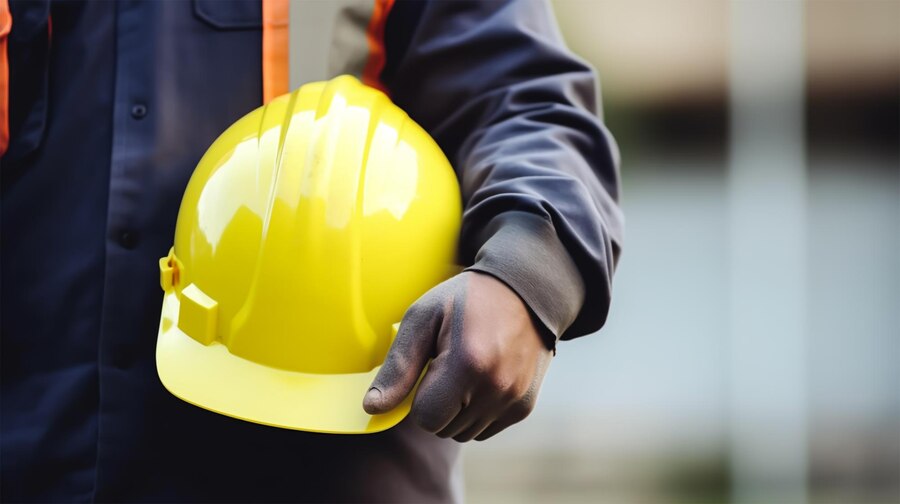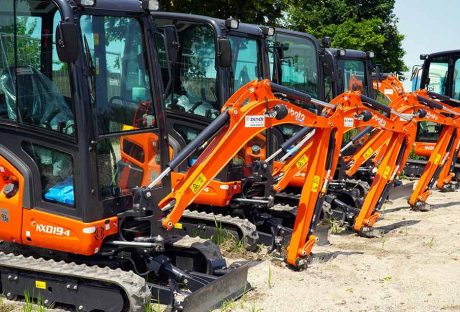Safety is a critical factor in any construction site.
However, some construction workers and management overlook safety until an accident happens. Working at a construction site is one of the most dangerous professions since many accidents occur, leading to injuries. Therefore, employers and professionals managing construction projects should use safety systems for ethical and financial reasons.
They should also ensure that the workers understand the risks and are cautious when working in hazardous situations. This is because accidents and injuries in construction sites lead to medical bills, project delays, lost work hours, compensation lawsuits, and headaches for human resource departments.
This piece highlights how construction project managers can promote safety and prevent workplace accidents.
What Is Construction Site Protection?
Construction site protection is nothing but keeping yourself and others from construction-associated activities like injury, disease, and even death. It is often a hazardous endeavor where site employees are exposed to potential risks. For instance, a worker is working at a height or relocating machinery which is extremely heavy. The resulting causes of a construction site fatality include electrocution, falls, and crush injuries.
Common Hazards Taking Place At A Construction Site
Hazards taking place at a construction site have caused deaths and injuries all across the world. When hazard identifications fail, it is either due to a lack of safety systems or improper training. Before we delve into the ways of maintaining construction-place safety, let us first discover what are the common hazards that take place in a site:
Falling From Heights
One of the most common fatal injuries that site workers experience is falling from height. According to HSE, 47% of employee fatalities are caused by falling from heights. Every employee who operates at height requires proper training and the right set of equipment. Although safety harnesses are important at every construction site, some do not wear them and, as a result, fall from height.
Trips, Falls & Slips
Another very common construction hazard is trips, slips, and falls. Construction sites usually have uneven terrain and unchanged terrain. Hence, trips, falls, and slips are no surprises at all. More than seven thousand construction workers are either injured severely or die due to a major trip or fall. It is the duty of managers and site supervisors to manage the site effectively to ensure the safe movement of workers.
Tremendous Noise
A lot of workers have complained about prolonged hearing problems and deafness when they work around loud and repetitive noises. They are also a dangerous distraction that distracts a worker from his job and results in accidents. A comprehensive assessment stating noise risk must be highlighted to avoid noise-related construction site hazards.
Steps To Maintain Safety In A Construction Site
Workplace safety is a significant consideration- irrespective of where you work. But when it comes to construction, particularly, one must always be careful. Even the smallest mistake can result in a life-altering consequence. Thinking about how to do so? Here are a set of steps that might help you:
Create Awareness About Safety Hazards
Ignorant workers are among the most significant dangers because they could make terrible mistakes, putting everyone at risk. Construction site managers should ensure the workers understand the possible hazards before they set foot on a construction site.
Understanding the risks ensures workers stay alert to prevent and respond to accidents. Therefore, employers should use OSHA safety guidelines to equip workers with the necessary knowledge to enhance safety. Only workers or visitors aware of the dangers of a construction site should be allowed access.
Quality Equipment
Workers need quality equipment and a spacious workplace to perform their tasks without causing accidents. Wrong or faulty equipment increases the chances of accidents and injuries. Therefore, construction managers should pay attention to equipment maintenance schedules and provide quality safety systems. They can also seek help from Doka and other companies that provide safety systems and equipment. It is also crucial to prevent exposure-related issues such as dehydration by providing water and using personal protective equipment.
Training Workers
Some construction workers gain skills on the job, but safety training is best offered before accessing the site. The authorities concerned with workplace safety often publish resources to help construction companies train their workers.
For example, they provide worksheets, pamphlets, training videos, and sometimes one-on-one training. Safety training is important not just for new workers but also for experienced workers. Therefore, construction firms should organize training to ensure all the workers gain or refresh their safety knowledge. The safety training can focus on simple things such as using a ladder or fall protection to ensure all the workers are well informed.

Documentation
Proper documentation is crucial for workplace safety. Construction sites must meet certain legal and safety standards before construction work begins. Therefore, construction firms should only commence operations with relevant licenses and documents. Contractors undertaking specific tasks such as blasting must provide relevant certification before accessing the site. Documentation protects the construction firm and helps prevent accidents and public scrutiny.
Effective Communication
Accidents usually happen when the workers are unaware of what to do or expect in a certain situation. However, sharing information about construction goals, objectives, and daily activities can reduce surprises or mistakes that could cause harm. Besides, the construction management should provide communication devices and tools such as headsets, walkie-talkies, and smartphones to ensure effective communication about workplace hazards. Effective communication ensures everyone is informed, enhancing operations and reducing safety risks.
Supervision
Construction employees should always follow the relevant safety guidelines and institute mitigation measures. However, since not all workers will follow the relevant procedures, supervision can help identify loopholes and enforce safety standards. For example, supervisors should keep tabs on all workers and ensure they have relevant safety gear. The workers should report any safety concerns to the supervisor for appropriate mitigation measures.
The Bottom Line… Stay Safe!
Construction companies should build quality structures while minimizing accidents, injuries, deaths, and related lawsuits.
The hope of reducing accidents in construction sites lies in raising awareness, safety training, effective communication, supervision, documentation, and quality equipment.
These simple things can help reduce accidents, enhance safety, and prevent legal issues associated with workplace accidents.
Read Also:
- Senior Staircase Safety: What You Need to Know
- Construction Safety – What you didn’t know!
- Top 7 Safety Tips For Road Construction























